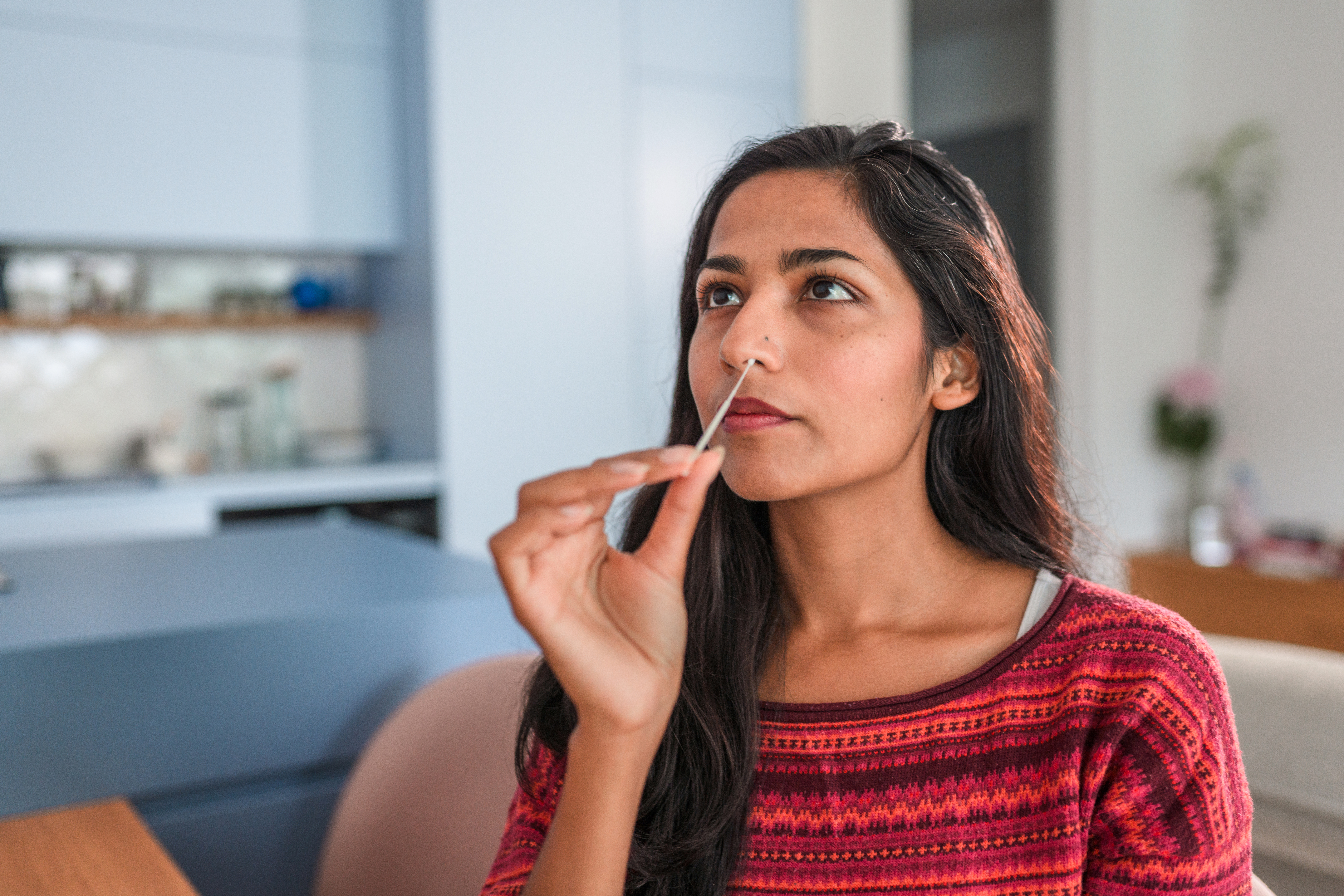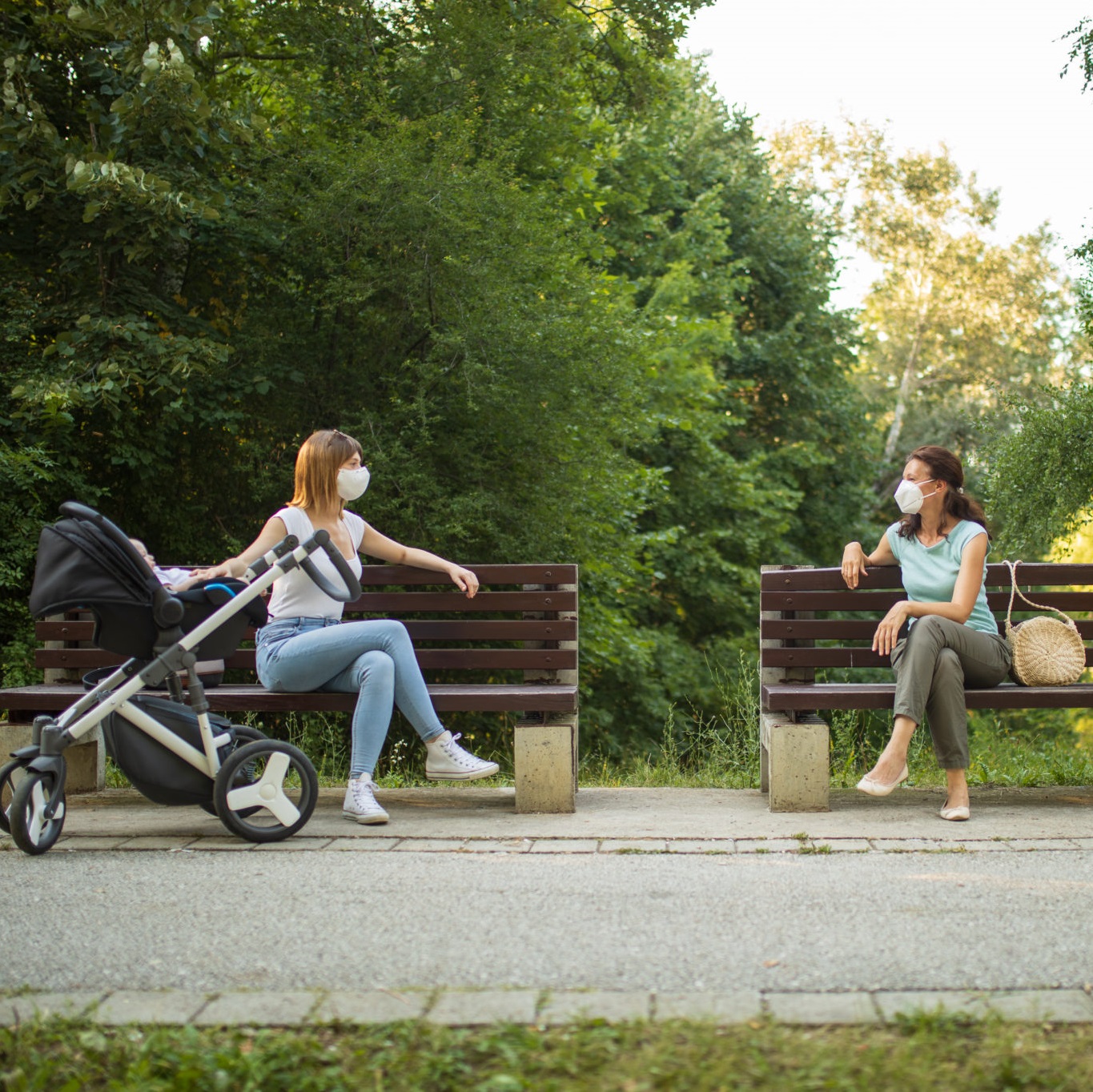When to Use an At-Home COVID Test Kit

December 09, 2021
During the pandemic, you may have grown accustomed to doing everything from home. If you enjoy accomplishing things while staying put, you may even be able to find out whether you test positive for COVID-19 without visiting a testing site: At-home COVID-19 testing kits are available for purchase, many without the need for a prescription.
We talked to Cristina Cicogna, M.D. an infectious disease specialist at Hackensack University Medical Center, about when to use the at-home tests and how to do so effectively.
Different Types of At-home COVID-19 Testing
When people talk about at-home COVID-19 test kits, they’re often talking about rapid antigen tests, which may show your COVID-19 status within minutes. Another option is a PCR test at-home collection kit that must be overnighted to a laboratory for processing; you perform the test in the privacy of your own home, then receive the results 24 to 48 hours after the facility receives your sample.
PCR tests are considered more reliable than rapid rests, but both are good at picking up most COVID-19 cases or recognizing that someone is COVID-negative.
“At-home rapid tests aren’t completely foolproof, but between 80 to 90 percent of the time, the test result is accurate,” says Dr. Cicogna. “It’s generally a good way to find out whether or not you’re COVID-positive, and the convenience factor of performing the test at home may make it easier to get the test done.”
Who Should Use an At-home COVID Test Kit?
There are several scenarios in which you may want to use an at-home COVID test kit, whether or not you’re fully vaccinated. An at-home test may be right for you if you are:
- You are experiencing COVID-19 symptoms
- You have been exposed to someone who has COVID-19
It is common before attending an event with a group of people, that everyone use a rapid antigen test. Those with a positive test result are asked not to attend. (Some schools or workplaces also may ask unvaccinated people to take these rapid tests regularly.)
Are At-home Tests Reliable?
Although rapid tests aren’t as reliable as PCR tests, an at-home rapid test should provide the same level of accuracy as a rapid test offered by health care providers, as long as you follow the instructions enclosed within the kit.
“You shouldn’t treat a negative result from an at-home rapid test as 100 percent proof that you don’t have COVID-19, but this type of test is accurate most of the time, so you should have reasonable comfort that a negative test result means that you’re COVID-free,” says Dr. Cicogna. “However, if you have COVID-19 symptoms and your test result comes back negative, it’s still a good idea to skip the event that you had hoped to attend, since you may still spread the flu, a cold or another virus to other people.”
Because PCR tests are more reliable, you might consider using an at-home PCR test collection kit, then self-isolating at home while waiting 24 to 48 hours for your test results. A negative test result from this type of test may be a more accurate indication of your COVID-19 status.
Next Steps & Resources:
- Meet our source: Cristina Cicogna, M.D.
- To make an appointment with Dr. Cicogna or a doctor near you, call 800-822-8905 or visit our website.
The material provided through HealthU is intended to be used as general information only and should not replace the advice of your physician. Always consult your physician for individual care.
Find a doctor near me
COVID-19 Vaccine and Kids: Safety & What to Expect

COVID-19 vaccines have proven to be safe and effective in kids ages five and older in clinical trials. Here’s what parents should know.
The Truth About COVID-19 Vaccines

COVID-19 Vaccine Facts: Dr. Zuckerman debunks myths. Get accurate information & resources. Call 800-822-8905.
Find a doctor near me

Socializing After the Vaccine: How to Do It Safely
It's normal to feel anxiety when venturing out in public, even if you are fully vaccinated — particularly as new virus variants and cases emerge.

Mix and Match COVID-19 Booster: Which Shot Should You Get?
As more and more Americans become eligible to receive the Covid-19 booster, you will be faced with a choice: Which COVID-19 booster should you receive?

How Monoclonal Antibodies Help Treat COVID
Learn how monoclonal antibody therapy can help treat COVID-19. Dr. Sawczuk explains eligibility and safety. Call 800-822-8905 for an appointment.

Should We Worry About the Omicron Variant?
Understand the Omicron variant. Dr. Lahita explains risks & prevention. Get vaccinated & boosted for protection. Call 800-822-8905.
